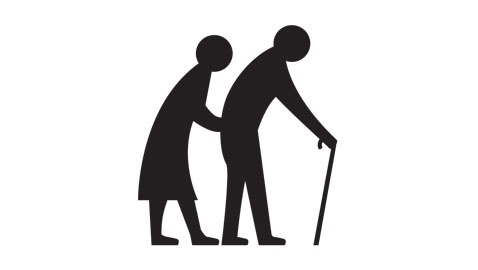
Much was made in the past of how equity release could be used to fund conservatories and cruises, but as the global financial crisis has widened we have witnessed an evolution in the way that older homeowners have utilised the plans. The number of individuals releasing equity to manage debts, mortgage payments and to maintain a reasonable standard of living has steadily increased as the economic malaise rumbles on and a recent report suggests that, looking ahead, equity release could also prevent a proportion of pensioners from sliding into poverty over the next couple of decades.
The study, conducted by Oxford Economics in conjunction with Just Retirement, found that in excess of one million pensioner households over the next couple of decades could be kept above the ‘relative poverty’ threshold defined by the Department of Work and Pensions (DWP) if they were to access the capital established in their homes. This figure was arrived at after it was ascertained that, at present, one in every seven pensioners has a disposable income of less than 60% of median household income. Three-fifths of this demographic own their homes outright, as do 38% of the very worst-off pensioners – those termed materially deprived by the DWP.
For those of us in the equity release industry, those figures make incredibly frustrating reading. On the one hand it is encouraging that the market clearly has plenty of potential for growth, but on the other it is exasperating to think that there are so many older homeowners struggling to make ends meet when they have so much wealth accumulated within their properties. The onus is certainly on the sector itself to reach out to such individuals and make them realise how equity release could benefit them and make their lives easier, but there is also a degree of responsibility to help educate older homeowners on the range of options available to them. Given the gradual erosion of state pensions, not to mention its reticence to tackle issues such as the long-term care debate, raising a little awareness of options such as equity release is the least the Government can do.
Perhaps the most concerning aspect in all of this is that things are only likely to get tougher for the nation’s elderly. The current statistics and projections are alarming enough, but with the cost of living continuing to rise, more homeowners than ever before carrying debt into retirement and a lack of forward planning from many of the individuals involved, there is seemingly precious little light at the end of the tunnel. Equity release could undoubtedly be the answer for swathes of older homeowners, but while its existence goes undetected and it isn’t given a platform to be noticed, then this trend will continue.
There will come a tipping point when the number of reasons why equity release makes sense outweighs the concerns or doubts as to its usefulness, but until then a proportion of older homeowners will continue to struggle financially while the potential solution is right under their nose.
Chris Prior is Manager Sales and Distribution at Bridgewater Equity Release















